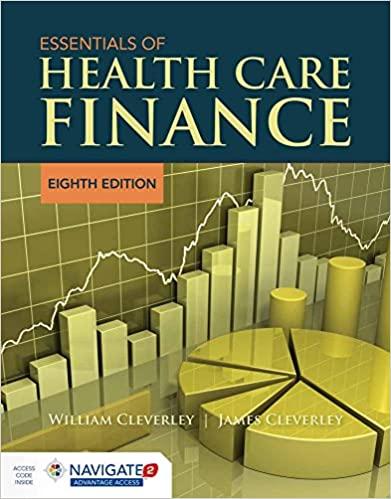Case Study for Financial Management BOND VALUATION Robert Black and Carol Alvarez are vice presidents of Western Money Management and codirectors of the companys pension
Case Study for Financial Management
BOND VALUATION Robert Black and Carol Alvarez are vice presidents of Western Money Management and codirectors of the companys pension fund management division. A major new client, the California League of Cities, has requested that Western present an investment seminar to the mayors of the represent-ed cities. Black and Alvarez, who will make the presentation, have asked you to help them by answering the following questions: a. What are a bonds key features? b. What are call provisions and sinking fund provisions? Do these provisions make bonds more or less risky? c. How is the value of any asset whose value is based on expected future cash flows determined? d. How is a bonds value determined? What is the value of a 10-year, $1,000 par value bond with a 10% annual coupon if its required return is 10%? e. Please provide your response for the following; 1. What is the value of a 13% coupon bond that is otherwise identical to the bond described in part d? Would we now have a discount or a premium bond? 2. What is the value of a 7% coupon bond with these characteristics? Would we now have a discount or premium bond? 3. What would happen to the values of the 7%, 10%, and 13% coupon bonds over time if the required return remained at 10%? (Hint: With a financial calculator, enter PMT, I/YR, FV, and N; then change (override) N to see what happens to the PV as it approaches maturity.) f. What is price risk? Which has more price risk, an annual payment 1-year bond or a 10-year bond? Why? g. What is reinvestment risk? Which has more reinvestment risk, a 1-year bond or a 10-year bond? h. How does the equation for valuing a bond change if semiannual payments are made? Find the value of a 10-year, semiannual payment, 10% coupon bond if nominal rd = 13%. i. Suppose for $1,000 you could buy a 10%, 10-year, annual payment bond or a 10%, 10-year, semiannual payment bond. They are equally risky. Which would you prefer? If $1,000 is the proper price for the semiannual bond, what is the equilibrium price for the annual payment bond?
Step by Step Solution
There are 3 Steps involved in it
Step: 1

See step-by-step solutions with expert insights and AI powered tools for academic success
Step: 2

Step: 3

Ace Your Homework with AI
Get the answers you need in no time with our AI-driven, step-by-step assistance
Get Started


